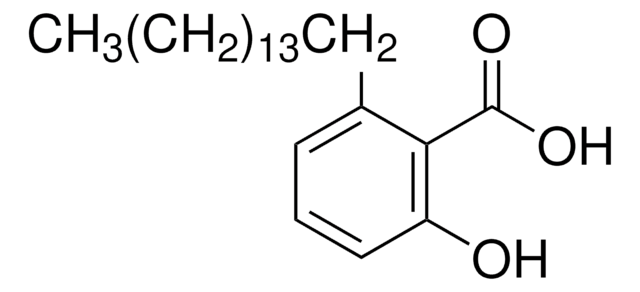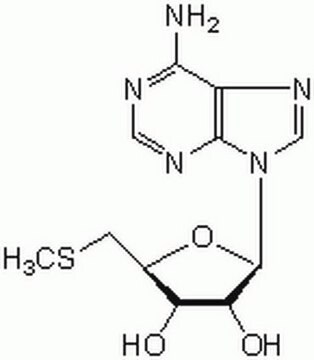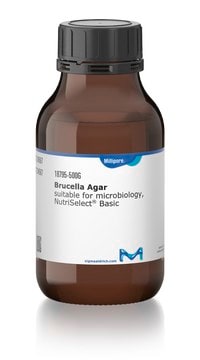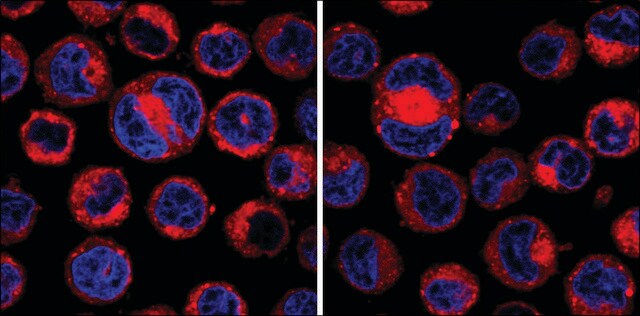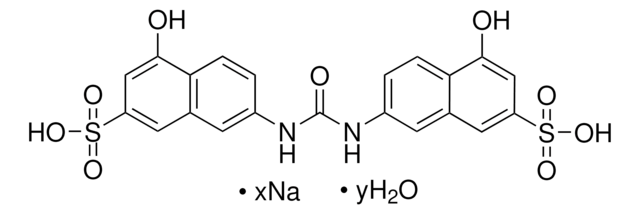A7154
Adenosine, periodate oxidized
≥93%
Synonym(s):
ADOX, Adenosine-2′,3′-dialdehyde
About This Item
Recommended Products
biological source
synthetic (organic)
Quality Level
Assay
≥93%
form
powder
solubility
0.2 M HCl: 50 mg/mL, clear, colorless to faintly yellow
storage temp.
−20°C
SMILES string
Nc1ncnc2n(cnc12)C(OC(CO)C=O)C=O
InChI
1S/C10H11N5O4/c11-9-8-10(13-4-12-9)15(5-14-8)7(3-18)19-6(1-16)2-17/h1,3-7,17H,2H2,(H2,11,12,13)
InChI key
ILMNSCQOSGKTNZ-UHFFFAOYSA-N
Application
- as a methylarginine transferase inhibitor in the human embryonic kidney (HEK)-293 T cells
- as a methylase inhibitor in H4 neuroglioma
- as a broad inhibitor of S-adenosylmethionine (AdoMet)-dependent methyltransferases in mouse embryo fibroblast NIH3T3 cells
Biochem/physiol Actions
Storage Class Code
11 - Combustible Solids
WGK
WGK 3
Flash Point(F)
Not applicable
Flash Point(C)
Not applicable
Personal Protective Equipment
Choose from one of the most recent versions:
Certificates of Analysis (COA)
Don't see the Right Version?
If you require a particular version, you can look up a specific certificate by the Lot or Batch number.
Already Own This Product?
Find documentation for the products that you have recently purchased in the Document Library.
Customers Also Viewed
Our team of scientists has experience in all areas of research including Life Science, Material Science, Chemical Synthesis, Chromatography, Analytical and many others.
Contact Technical Service



